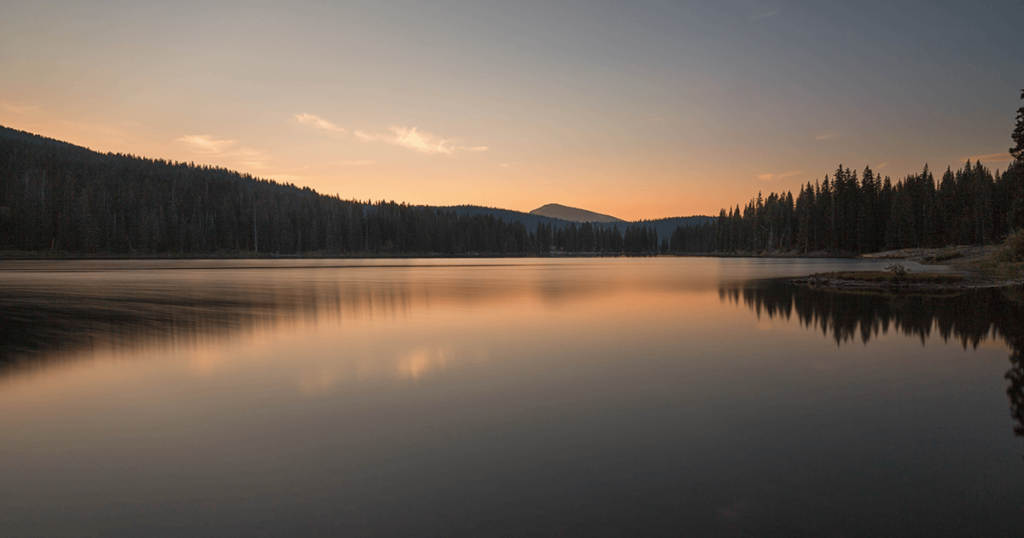
The Patch by John McPhee; Farrar, Straus and Giroux, 242 pp., $26
For devotees of John McPhee, reading The Patch, his latest collection of essays and reportage, is like revisiting a favorite fishing hole that has remained beautifully unspoiled. The sunlight still sparkles on the water, the breeze still sifts through the pines, and beneath a familiar opening in the lily pads, an ancient pickerel holds its position, lord and master of its small domain. Here is McPhee’s description of the fish:
With those minutely oscillating fins, a pickerel treads water in much the same way that a hummingbird treads air. If the pickerel bursts forth to go after prey, it returns to the place it started from, with or without the prey. … You can return half an hour later and it will be there. You can return at the end of the day and it will be there. You can go back next year and it will be there.
That pickerel appears in the title essay of The Patch, and though McPhee does not exactly invite a comparison between himself and the fish, it is hard to resist; the pickerel is wildly alert and highly efficient, brilliantly colored, and yet often overlooked. In other words, it possesses many of the same traits that McPhee has singled out for admiration in the people he profiled during his more than five decades at The New Yorker. In his long career—McPhee is 87, and The Patch is his 33rd book—he has written about a dizzying range of topics, but for some readers (like me), his genius for portraiture is what makes the work shine. Several of McPhee’s profiles of public figures—like Arthur Ashe, the tennis star, or David Brower, the formidable leader of the Sierra Club—stamped lasting images of his subjects. Many people whom he met by chance—Fred Brown, in The Pine Barrens, for example, who is first seen in his underwear, eating a pork chop and onions—leaped from his pages right into the imagination. McPhee has always been drawn to odd, idiosyncratic, obsessive people who happen to possess a unique talent or way of moving through the world; and in The Patch, perhaps his most personal book, it is clearer than ever that McPhee himself is one of their number.
The title essay concerns the death of his father, a sports doctor who looked after the college teams at Princeton. McPhee notes the condition of his father, left insensate by a stroke, but then proceeds mostly by indirection. Reminiscences of father-son fishing trips, their most intimate hours together, are balanced against a natural history of the pickerel; and McPhee, seated at his father’s hospital bedside, describes a recent solo fishing outing on an icy cold day in New Hampshire. In this, ostensibly his last communication with his father, the restrained patterns of a lifetime have not changed. McPhee adds layers of detail, not as a direct tribute to his father but as a final gift, an exquisitely made offering to a dying, distant man. As the outing ends, he succeeds in dropping a perfect cast on the little patch of open water among the lily pads. “I caught him with your bamboo rod,” he tells his father, and the old man’s eyes well over.
There is a slyness in this book to how McPhee, who has perfected the skill of hovering like a shadow at the edge of his work, chooses to reveal himself. He writes openly not only about his father but also about college roommates, coaches who have become friends, and his inexplicable, irresistible fascination with golf balls. Not a golfer himself, he is ever on the lookout for golf balls. On his canoe trips, he scoops them up from the bottom of the river, using his preferred tool—an “orange trapper,” a nine-foot, telescoping ball retriever, a wand of delicacy and surpassing beauty. “You could conduct an orchestra with it,” he writes.
The Patch draws on previously published material, but from it McPhee creates something new. The book’s longest section, titled “An Album Quilt,” is, he writes in a brief introductory note, fashioned from “blocks” of prose selected from earlier pieces. He cut them down in length, added new touches, and then stitched them together into a new pattern, “trying to make something, not just preserve it.”
I might have called this section “A Miscellany.” The pieces are held together by McPhee’s voice, wit, curiosity, and tireless craftsmanship. Cameos of several male actors who had their heyday in the 1960s and ’70s (Cary Grant, Richard Burton, Peter Sellers, Jackie Gleason) and female singers (Jenny Lind, Joan Baez, Barbra Streisand) are arranged cheek by jowl, along with bits about Mensa, gadgets, the gold in the vaults of the Federal Reserve, Hollywood names, sketches of his fishing buddies and tennis partners and his droll, former New Yorker editor, Robert Bingham. His four daughters drift through the pages like immortals.
In academic departments where “creative nonfiction” is taught and the most popular forms are memoir and the lyric essay, McPhee’s work still sets the standard for fact-based literary journalism. He’s aware that his approach might seem old school—but he casts a twinkling eye on the rise and fall of reputations, including his own. After all, this is a writer whose magnum opus, Annals of the Former World, which earned him a Pulitzer Prize in 1999, is a comprehensive history of the geology of North America. He has pondered the birth of mountains, the origin of oceans, and the mysteries of deep time. He knows that the stone found at the highest elevation on Earth was once at the bottom of a sea, the kind of fact that inspires the wonder that is at the heart of his work.
“If by some fiat,” he writes, “I had to restrict all this writing to one sentence, this is the one I would choose: The summit of Mt. Everest is marine limestone.”

